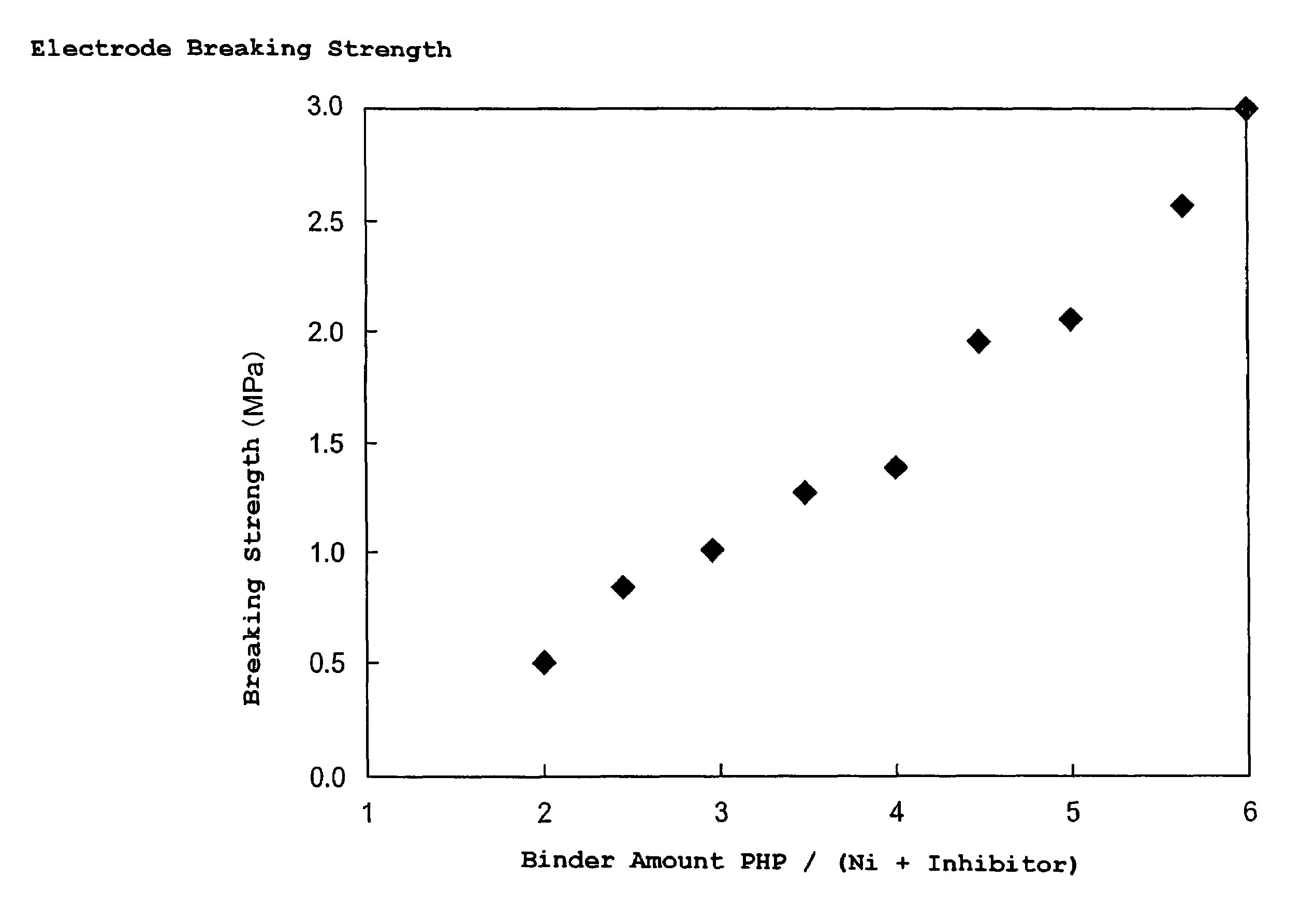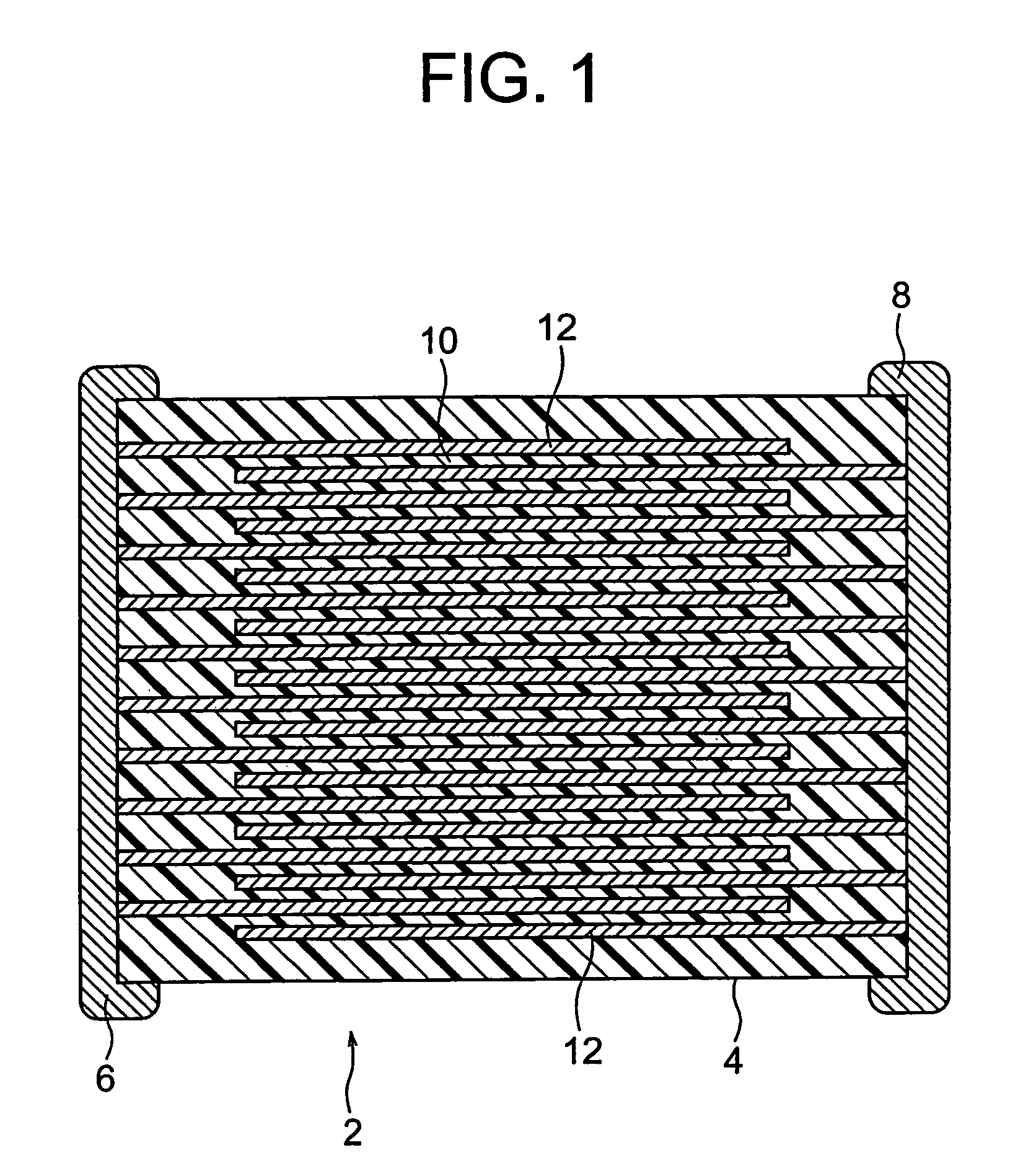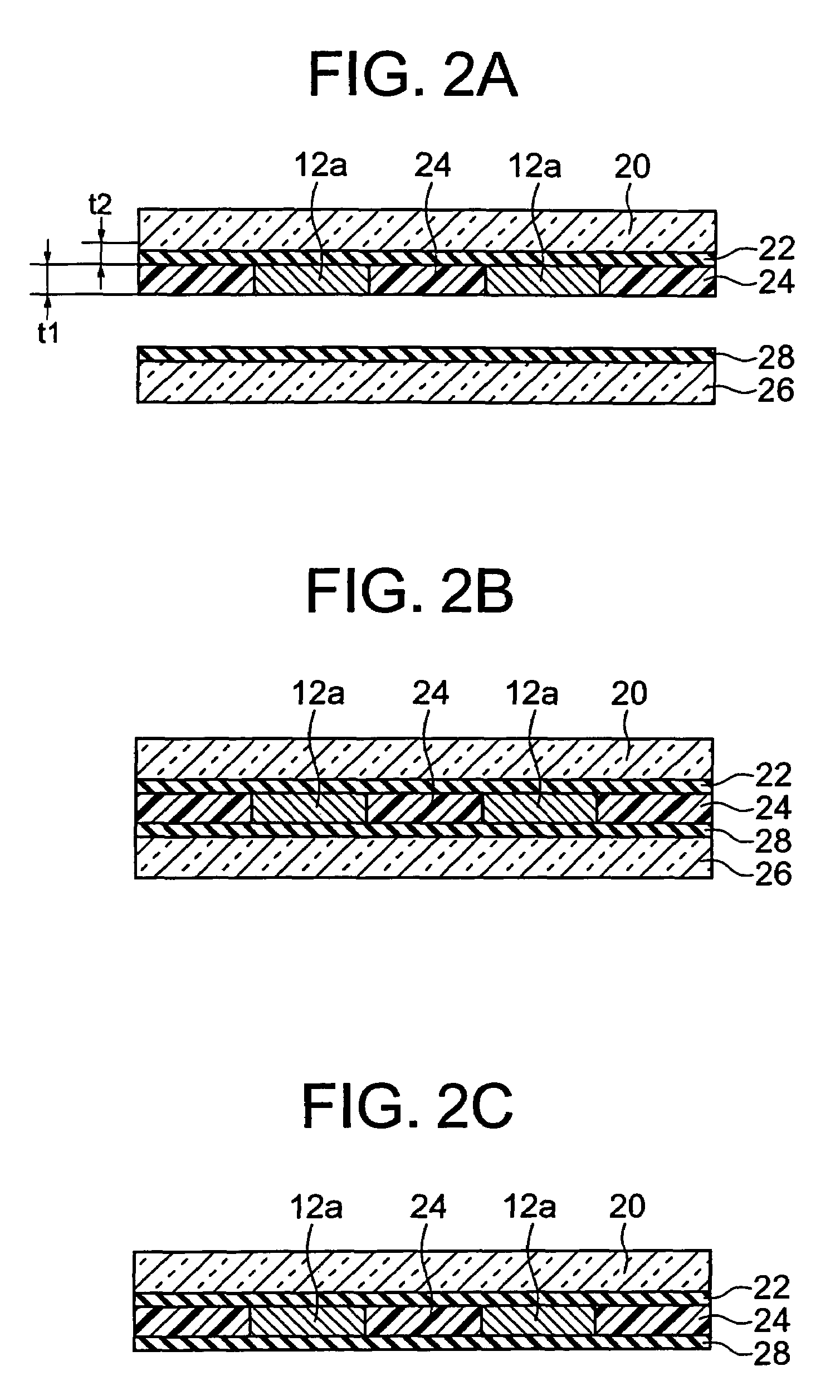Internal electrode paste and production method of electronic device
a production method and technology of electronic devices, applied in the direction of non-metal conductors, conductors, fixed capacitor details, etc., can solve the problems of difficult transfer of adhesive layers, poor adhesive force of the internal electrode layer formed after drying the paste, and easy damage of the internal electrode layer
- Summary
- Abstract
- Description
- Claims
- Application Information
AI Technical Summary
Benefits of technology
Problems solved by technology
Method used
Image
Examples
example 1a
[0154]Production of Green Sheet Paste
[0155]As a starting material of ceramic powder, BaTiO3 powder (BT-02 made by Sakai Chemical Industry Co., Ltd.) was used. A ceramic powder subcomponent additives were prepared to satisfy (Ba0.6Ca0.4)SiO3: 1.48 parts by weight, Y2O3: 1.01 parts by weight, MgCO3: 0.72 parts by weight, Cr2O3: 0.13 parts by weight and V2O5: 0.045 parts by weight with respect to 100 parts by weight of the BaTiO3 powder.
[0156]First, only the subcomponents were mixed by a ball-mill to obtain slurry. Namely, the subcomponent additives (total amount 8.8 g) and a solvent (16 g), wherein ethanol / n-propanol is 1:1, were preliminary ground by a ball-mill for 20 hours. Next, the preliminary ground slurry of the subcomponent additives, ethanol: 38 g, n-propanol: 38 g, xylene: 28 g, mineral spirit: 14 g, DOP (dioctyl phthalate) as a plasticizer component: 6 g and a polyethylene glycol based nonionic dispersant (HLB=5 to 6) as a dispersant: 1.4 g were added to BaTiO3: 191.2 g and...
examples 1b to 1e
[0184]Other than adding dioctyl phthalate (DOP) as a plasticizer by an adding quantity of 25, 50, 75 and 100 parts by weight to the internal electrode paste with respect to 100 parts by weight of a binder resin, internal electrode pastes were fabricated in the same way as in the example 1a, stacked bodies as shown in FIG. 3B were produced, and the same test was conducted. The results are shown in Table 1.
[0185]Also, release strength of the carrier sheets 20 and 30 was measured on the stacked bodies as shown in FIG. 3B. The results are shown in Table 1 and FIG. 10.
[0186]Measurement of release strength was obtained by pulling up one end of the carrier sheet 20 in the direction of 90-degree with respect to the plane of the stacked body at a rate of 8 mm / minute, for example, in a state shown in FIG. 3B, and measuring a force (mN / cm) acting on the carrier sheet 20 at the time as the release strength. Since the carrier sheet 20 positions on the release layer 22 side, in Table 1 and FIG. 1...
examples 2a to 2k
[0192]As shown in Table 2, other than using a polyvinyl butyral resin or a polyvinyl acetal resin as a binder resin of the internal electrode paste, changing a polymerization degree, butyralation degree or acetalization degree thereof, and making an adding quantity (metal content) of the Ni particles to 45 wt % with respect to the entire electrode paste, internal electrode pastes were fabricated in the same way as in the example 1a.
[0193]Results of measuring 8% TPO lacquer viscosity in the respective examples and viscosity of the electrode pastes are shown in Table 2. The viscosity of the paste was measured by using an RV20 type cone disc viscometer made by HAAKE at 25° C., and viscosity (V8(1 / s)) when giving rotation of obtaining a shear rate of 8[1 / s], and viscosity (V50(1 / s)) when giving rotation of obtaining a shear rate of 50[1 / s] were measured.
[0194]Note that in Table 2, the 8% TPO lacquer viscosity means viscosity of a vehicle obtained by dissolving 8 parts by weight of a res...
PUM
| Property | Measurement | Unit |
|---|---|---|
| thickness | aaaaa | aaaaa |
| thickness | aaaaa | aaaaa |
| thickness | aaaaa | aaaaa |
Abstract
Description
Claims
Application Information
 Login to View More
Login to View More - R&D
- Intellectual Property
- Life Sciences
- Materials
- Tech Scout
- Unparalleled Data Quality
- Higher Quality Content
- 60% Fewer Hallucinations
Browse by: Latest US Patents, China's latest patents, Technical Efficacy Thesaurus, Application Domain, Technology Topic, Popular Technical Reports.
© 2025 PatSnap. All rights reserved.Legal|Privacy policy|Modern Slavery Act Transparency Statement|Sitemap|About US| Contact US: help@patsnap.com



